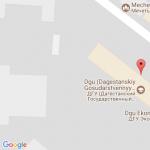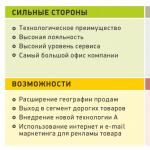What to study in computer science and computing. Future profession
About the specialty:
Description of the specialty informatics and computer technology, in which universities informatics and computer technology are taught, admission, exams, what subjects are studied in the specialty.
Automated programming systems, electrical engineering and electronics, programming, computer operating systems and peripheral devices, networks and telecommunications, computer and engineering graphics are the main subject of study for students in the theoretical part of training. In the practical part of the training, which introduces the profession, students will have to learn to analyze information flows, create search engines and storage networks. According to experts, the best teachers in this specialty are practitioners.
Employment in the specialty of computer science and computer technology
Vacancies of programmers, system administrators and operator engineers are open for the graduate. At the workplace, you will be engaged in software programming, computer modeling, Web-administration, management and control of automated control systems at enterprises.
Career in computer science and computing
Programmers are one of the most demanded specialists in the modern labor market. High-quality specialists earn over one hundred thousand rubles a month. Also widely demanded system administrators, whose salary level depends on the size of the company in which he works and his experience
Description
In order to become a qualified specialist in the chosen direction, the student will have to learn:
- determine the scope of research, collect, check, process and analyze the primary information for the design;
- develop software using modern instrumental applications and tools;
- analyze technical data and scientific information, draw conclusions based on the experience of foreign and Russian colleagues on the design topic;
- train company employees, use modern methods and automated software for research and design;
- carry out maintenance of computers, software and peripheral equipment;
- install the necessary software systems and applications, configure and ensure the normal operation of software and hardware;
- analyze indicators of technical condition, depreciation of computing equipment;
- take measures for the current repair and prevention of high-quality operation of systems;
- to establish the relationship between the elements and nodes of computing devices;
- to mount, test and commission computer and information networks;
- work with programming languages and write applications in them.
Who to work
The professional area of the bachelors will be information technology related. Graduates can be programmers, layout designers, web-administrators. They often become computer operators, system administrators. Also, specialists are hired by traffic managers and electronics. The spheres of activity of enterprises can vary in their purpose, they include banks, service companies, medical institutions and others. The industrial area also does not pass by qualified personnel. Here, recent students find their application in organizations dealing with forestry and agriculture, mechanical engineering.
Direction "Informatics and Computer Engineering"- one of the most stable in terms of high demand in the world. The demand for specialists in the field of programming, computer science and work with computer technology (engineers and technicians) began to grow back in the 90s, in the 2000s it became steadily high, which remains to this day. And it is obvious that this situation will continue for more than one decade.
"Informatics and Computer Engineering" is a key group of specialties in the computer industry. Software is the basis for the operation of both traditional personal computers and more powerful ones designed for scientific purposes or to support the operation of large enterprises. Graduates of universities with a degree in Informatics and Computer Engineering work in companies such as Microsoft, Oracle, Symantec, Intel, IBM, HP, Apple. But if the companies listed above belong to the so-called "old guard", then today good programmers also work in such companies as Google, Facebook, Amazon, PayPal, EBay, Twitter, etc.
Graduates of the undergraduate or graduate degree in Computer Science and Computer Science can hold positions in the following areas:
- software development: this includes system analysts, programmers, developers. During the training, a lot of attention is paid to learning programming languages such as C ++, Java, etc. It is important to understand that even after graduation, such specialists must constantly take advanced training courses in order to keep up with new trends and changes in programming languages;
- software engineering (or software for computer technology and automated systems) - this includes a more complex development of software products at the intersection of computer technology, engineering, mathematics, design and teamwork;
- quality control and testing;
- development of technical documentation;
- technical support;
- management of large databases;
- Web design;
- project management;
- marketing and sales.
Over the past decades, the world is rapidly overgrown with new technologies, and specialists in the field of informatics and computer technology are needed more and more. Graduates will have career prospects as software engineers, web designers, video game developers, systems analysts, database managers, and network administrators.
Another area of specialization is direct work with computers, complexes, systems and networks. It is a significant subsector of the computer industry. Engineers and technicians learn to work with hardware, that is, in the production of equipment and computers, as well as a variety of gadgets such as printers, scanners, etc.
Computer development begins in the applied research departments of large companies. Teams of engineers (mechanics, electronics, electrical, manufacturing, programming) work together to develop, test and manufacture components. A separate area is marketing research of the market and production of the final product. It is in this sector that there is the greatest shortage of qualified specialists familiar with programming, robotics, automation, etc.
But if these specialties can be classified as quite traditional for this direction, today a number of professions that simply did not exist about 10-15 years ago are gaining more and more popularity.
- User interface development: These specialists are required in companies such as Electronic Arts, Apple, Microsoft and others involved in the development of video games, mobile applications, etc.
- Cloud computing: Many companies like Google, Amazon, AT&T and Microsoft need professionals such as a cloud software developer, a cloud network engineer, and a cloud product manager.
- Processing and analyzing large databases: specialists in processing large databases (Big Data) can work in a wide variety of companies - in business and the financial sector, e-commerce, government agencies, medical organizations, telecommunications, etc.
- Robotics: these specialists are in demand in large industrial companies, for example, in mechanical engineering (especially in the automotive and aircraft industries).
Universities that offer training in the field of "Informatics and Computer Engineering" include: N.E. Bauman, MEPhI, MIREA, MESI, MTUSI, NRU HSE, MEI, MAI, MAMI, MIET, MISIS, MADI, MATI, LETI, Polytech (St. Petersburg) and many others.
Communicate with university representatives personally
As you can see, there are a great many universities and programs in this specialty. Therefore, it is easier and faster to make your choice by visiting the free exhibition "Master's and Further Education" in or.
Direction Number:
Form of study:
Cost of education:
From 122 960 rubles
Number of seats:
Budget: & nbsp 100
Contract: & nbsp 30
The level of education
and training period:
Undergraduate 4 years
Minimum points:
Math: & nbsp 55
Informatics and ICT: & nbsp 55
Russian Language: & nbsp 36
2018 budget passing score: & nbsp 221
ABOUT SPECIALTY

Are you hardworking and love to gain new knowledge? Are you not afraid of difficulties and ready to become a real specialist? Do you love working with programming languages and analyzing technical data and scientific information? If yes, then this direction of training is ideal for you.
The main goal of the educational program is to train qualified personnel in the field of informatics and computer technology. In addition, an important task is the formation of knowledge and skills in various fields, such as humanitarian, social, economic, mathematical and natural sciences. Our graduates receive higher education, which allows them to easily carry out development and research aimed at creating and ensuring the functioning of automated management and control systems, measuring and corporate information systems. Thanks to the acquired universal and subject-specific skills, the graduate feels confident in the labor market. The educational program includes the choice of individual educational trajectories by students. Education forms the readiness of university graduates for active professional and social activities.
After graduation, you will be able to successfully continue your studies on master's programs not only at UrFU, but also at leading universities in Russia. You will have a unique opportunity for prospective work at enterprises of various forms of ownership: from analytical departments of large financial organizations to software development departments of modern IT companies.
Major disciplines

- Foreign language
- Maths
- Physics
- Computer and engineering graphics
- Algorithms and data structures
- Object Oriented Programming
- Metrology and standardization
- Electronics
- Fundamentals of professionalism
- Software engineering, etc.
Minors
The entire spectrum of world knowledge at the highest level is available to the student of UrFU. For example, this manifests itself in a tool such as a minor. Minors are educational programs specifically designed to provide students with knowledge and competencies in areas other than the mainstream of study. An important feature is that when teachers prepare such a minor module, they initially strive to make it interesting and exciting for a wide range of students, and not only for students with specialized training. The opportunity to master the minors appears in the 3rd year, and they last one year (fall and spring semesters). In each semester, a student can choose only one minor and the one who successfully completed the training and passed the test will be issued a certificateDifficulties a student may face
1. Lack of time and inability to correctly distribute it2. Issuance of a large number of different kinds of work at the end of the semester for a short period
3. You have to learn a lot on your own, a large amount of homework
4. Insufficient level of the school knowledge base for mastering new, more complex subjects
What to work with?
Database administrator
Specialist in charge of maintaining database management systems.
Software engineer
A specialist in charge of software development, website development.
Circuit engineer
The specialist responsible for the development of circuitry solutions, printed
System Administrator
The specialist responsible for maintaining the correct operation of computer technology

It should be noted that today IT specialists are in high demand. Over the past decades, the world is rapidly overgrown with new technologies, and specialists in the field of informatics and computer technology are needed more and more. The graduate will open up prospects for building a successful career.
1. Database administrator- A specialist in charge of maintaining database management systems. Its main responsibility is to ensure the constant operation of the server and user access to the necessary information. A database is a collection of various materials (articles, calculations, regulations, tables, customer data, etc.), which are structured in accordance with certain rules, stored in the computer's memory and processed by means of its computing power (special software)
2. Engineer programmer- A specialist responsible for the creation of control programs, software development, website development. There are also those who are engaged in the creation of mobile applications. In general terms, a software engineer is engaged in the development, debugging (finding and fixing errors), testing the operability and further changing the software.
3. Circuit engineer- A specialist responsible for the development of circuitry solutions, printed circuit boards. He provides technical support for the manufacture of prototypes, debugging and tuning, prepares and approves TZ, draws up technical documentation for the product in accordance with the ESKD standards.
4. System administrator- A specialist responsible for maintaining the correct operation of computer hardware and software and information security of the organization.
5. Systems analyst- A specialist responsible for solving organizational problems using systems analysis. It is impossible to describe this profession broadly. Such a specialist analyzes the tasks set for the company and comes up with exactly how to solve them: how the system will work, what technologies should be used. This profession in Russia has emerged quite recently. Its appearance is directly related to the increased demand for process automation in large firms. 
I study at the Faculty of Informatics and Computer Engineering at the Department of Automated Information Processing Systems and Control at KPI, Kiev Polytechnic Institute, and Information Systems and Technologies is my path.
Actually, an excerpt from the description on the site, so as not to pull the cat by the tail:
Undergraduate study program
1. Programming cycle
Algorithmization and programming. Algorithms and data structures. Object Oriented Programming. Object - oriented modeling. WEB - technologies and WEB-design. Organization of databases and knowledge. Computer graphics. Computer technologies for statistical information processing. Cross - platform programming. Technology for creating software products. OS. Basics of WEB-design.
2. Mathematical cycle
Analytical geometry and linear algebra. Higher mathematics. Elements of the theory of functions of a complex variable and operational calculus. Discrete Math. Probability theory, probabilistic processes and mathematical statistics. Mathematical methods of operations research. Theory of algorithms. Numerical methods. Decision making theory. Statistical methods, the theory of event streams.
3. System-technical cycle
System analysis. System modeling. Distributed systems and parallel computing technologies. Information security technologies. Information systems design. Computer-aided design technologies. Data mining. Artificial intelligence methods and systems. IT project management. Physics. Electronics and electrical engineering. Computer circuitry and computer architecture. Computer networks. Microprocessor systems.
Areas of activity
Our graduates are broad-based specialists. The objects of their specialization are in various areas of human activity - in the areas
- industry
- medicine
- finance
- transport
- trade
- business
Our graduates are capable of solving a variety of problems: from automation of accounting to the development of computer networks and intelligent decision-making systems. As systems analysts, they deeply understand the essence of complex processes of interaction between various spheres of industrial, humanitarian and business activities, which gives them advantages for successfully competing in the labor market.
Graduates work wherever software and various information (system) technologies are developed, implemented, adapted or operated, in particular, as:
- system analysts,
- project managers,
- data processing specialists,
- implementation and reengineering consultants,
- database administrators,
- applied programmers,
- support engineers,
- the like.






